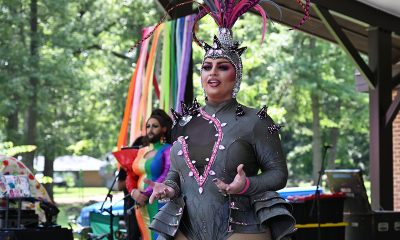a&e features
Kinsey Sicks founder Rachel/Ben Schatz to bid the road farewell
Weekend Rehoboth performance is bittersweet for comedian/songwriter
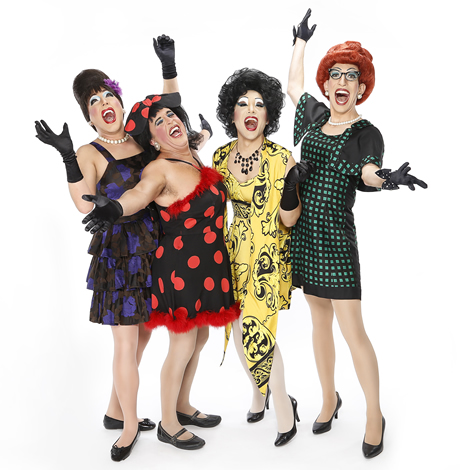
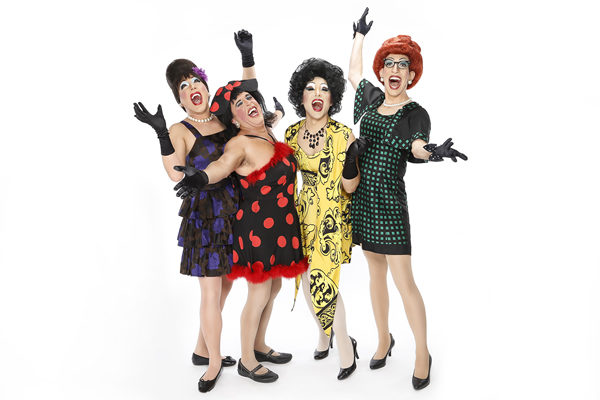
CAMP Rehoboth Presents
The Kinsey Sicks
‘Things You Shouldn’t Say’
Rehoboth Beach Convention Center
229 Rehoboth Ave.
Rehoboth Beach, Del.
$35-500
camprehoboth.com
kinseysicks.com/calendar
The Kinsey Sicks is celebrating 25 years of dragapella, performing their hit Off-Broadway show “Things You Shouldn’t Say” and “Naked Drag Queens Singing” until September at the Art House in Provincetown, Mass.
The tour is bittersweet however as Benjamin Schatz, founder and chief writer for the group, will retire along with his character Rachel at the end of the month. The quartet was founded in 1993 when five friends went to a Bette Midler concert as the Andrews Sisters and were requested to sing.
Their decline was short lived once they realized that they all had musical backgrounds. From then on, they’ve performed all around the country at some of the most prestigious venues such as Herbst Theatre in San Francisco, the Nordstrom Recital Hall in Seattle, the Broward Center in Ft. Lauderdale, the Hobby Center in Houston, the Wheeler Opera House in Aspen and the Pacific Design Center in Los Angeles. Schatz/Rachel spoke with the Blade about her beginnings with the Kinsey Sicks, her love for the stage and her plans for retirement.
WASHINGTON BLADE: How were you introduced to drag?
BENJAMIN SCHATZ: I used to do drag in college but I always did it as a politically provocative thing. This was back in the ’70s so drag was pretty threatening back then. Back in the late ’80s and early ’90s when I was an attorney and executive director at the peak of the age of terror in terms of discrimination and hatred, I used to organize drag excursions with my friends. Part of my job as an activist back then was to be a respectable homosexual and I wanted to remind myself that I wasn’t, in fact, respectable.
BLADE: When you founded the Kinsey Sicks, how did the character of Rachel come about? Or has Rachel always been the name you used while doing drag?
SCHATZ: Back in college my friends and I assigned each other drag names. I’d do it to anybody who was queer, male or female, and I’d give them a drag name. So my friends called me Rachel. The character of Rachel has evolved or devolved over time to be somewhat different from Ben I hope. It was just a name that people originally assigned to me and it stuck.
BLADE: How has Rachel shaped or shifted the way the way you present yourself as Ben?
SCHATZ: I often say that Rachel gives Ben a fighting chance of being socially appropriate because Rachel gets all of that out of Ben’s system. Rachel is an unboundaried mess. A delightful unboundaried mess and let’s just say Ben has a tendency to let Rachel do the work for him. Rachel has changed over time. One of the Kinsey Sicks moms said, “You should make Rachel more vulnerable,” and I did. I started making her more vulnerable and more lovable. She’s a lovable unboundarly mess. I think Rachel represents for a lot of people their queerness, unboundaried, embarrassing self. But she does it with such utter cluelessness that you just can’t help but love her. There is nothing she won’t do or say. Although, as a writer, there are many directions we won’t have her go. People think that we’ll go anywhere but in fact, as a writer, we’re very careful about racism, gender stereotypes and sexism. We’re very careful about who’s the butt of our jokes.
BLADE: Speaking of your writing, as I was looking at your repertoire of songs, I noticed the amount of creativity that goes into creating these and I think it’s amazing. So, how do you come up with these titles?
SCHATZ: I appreciate your lack of taste and judgment. That’s a promising sign. So there’s three different types of writing goes on. About 60 percent of our songs are parodies and 40 percent are original songs. For parodies, that just happens when I hear something and all of a sudden the idea comes to mind. It’s very easy to write words to another tune. The challenge is to change as few words as possible, use the original lines and completely subvert the original intention. So once I get an idea for a parody, I spend a lot of time with the original rhyme scheme and thinking about making as few changes as possible and words I can change the intent and the meaning 100 percent. With original songs, that’s more of isolating myself. I’ll often say I’m taking this time on the side to write a song. I don’t really know where they come from. I have no idea. Then there’s the writing of the script, which is a whole other beast in itself. They utilize different skills and they’re all entirely different skills than the performance. So, I can’t write when we’re on the road. That’s sort of an extroverted energy while writing is very quiet, withdrawn and un-Rachel like. I hate writing. I love having written. You can have an office job and coast but if you’re writing you want to write the best you can and you never can write the best you can. There’s always something better you can do which can make it torture.
BLADE: With you retiring from the show, how will that process change?
SCHATZ: The great thing is that I still get to offend people all over the world without having to get dressed or leave my house. That’s what I’m really excited about. I love the performing. I’ve loved it as much as I ever have but, touring life after a couple dozen years, and it’s not like we’re Cher or Madonna with a glamorous entourage, we’re schlupping luggage upstairs at three in the morning. It loses its glamour after a couple dozen years when your body gets old. So, I have mixed feelings about retiring from touring but my body does not. So, it’ll require more communication with the group because part of what we do now is we test it out on the road and we say, “Oh that didn’t get a laugh” or “that needs a different ending musically because it doesn’t have enough pop” and I won’t be there for that. There will also be times when the group will be performing where I am. It’s much easier to critique what’s going on on stage when you’re not actually on stage performing. I will really be thrilled to be able to write stuff and then be in the audience not trying to remember my lines, or my note, or my choreography. Just to see what’s going on and how the audience reacted. That’s something I’m really looking forward to.
BLADE: Angel is the group’s newest member. How will the transition from Rachel to Angel affect the content of the show?
SCHATZ: Well the show is a show I wrote and we started it off with me. Angel is taking over the spot. Rachel and I met with J.B. (McClendon), who plays Angel, and we got to know each other and I think I gave him some useful tips. We’ve had people replace other people in the past, not too often because we have a lot of longevity like Jeff (Trixie) who’s been with us for 16 years, so the others tell me great things. It takes awhile for people to sink to the level of performing with a group. So there’s a certain kind of observation that’s our own and I think that culture remains very strong. So the others are really excited about Angel’s performances and I think they have the tools to guide Angel to blossom over the years to come.
BLADE: You all are currently performing two shows: “Things You SHouldn’t Say” and “Naked Drag Queens Singing.” How will “Naked Drag Queens Singing” be different or similar to previous shows?
SCHATZ: The show that they’re doing in Rohoboth (“Things You Shouldn’t Say”) was the first time we broke character in the show. It’s a really powerful show, on top of being hilarious, it’s also very heartbreaking. So the question was what do we do after that? So “Naked Drag Queens Singing” was another “let’s try this experiment and see if it works.” So, everybody breaks character and we kind of go seamlessly back and forth between character and not and talking with the audience. It’s a very exciting experiment and it’s been going fantastically so that really people get eight characters for the price of four. It’s a really interesting experiment because lots of drag performers are very tethered to their personas and I think a lot of people are interested to see what’s behind drag and the members of the Kinsey Sicks are very thoughtful. While we are a comedy group, there’s a lot of thought behind what we have to say and why we say it. It was another big risk and it turns out it was a successful one.
BLADE: Let’s say under this current administration that the Kinsey Sicks were invited to perform at the White House. What would you all perform and what would you want to accomplish?
SCHATZ: I would totally take the opportunity to perform. My personal goal would be to induce a heart attack. I think that would be a worthwhile goal. People like the current administration need to be challenged. They shouldn’t have safe spaces. So I would perform at the White House. And I’ll tell you what; when we’re done with this conversation, I’ll sit by my phone waiting for the invitation. I would definitely come out of retirement for that.
BLADE: What will you miss about performing?
SCHATZ: Well, I’ll definitely miss picking on big guys and sitting on them. It tends not to work very well in civilian life. I love making people laugh, making people think (and) I love the uniqueness of us. There’s nothing like us. I never feel more alive then when I’m on stage and I never feel more dead then when I’m on the road waking up at 3 in the morning getting ready for the next gig. I’ll miss the incredible excitement and satisfaction. I love the feeling of constantly growing and I do a lot of improvisational humor so I’ll definitely miss that. But, the goal is to quit while you still love it and while people still love you.
BLADE: Is there anything in your personal life that you’ll be doing to replace that theatrical high?
SCHATZ: I promised myself that I would set no goals for my retirement for at least a year. I’ve spent my whole life perpetually making the impossible happen so right now I’m letting things happen to see where things go which is kind of revolutionary. I suspect that I’ll be writing again soon. Well, I know I’ll be writing for the group. I don’t know what I’ll write. I don’t know what I’m doing and I’m wildly excited about it. I know there will be other chapters but I don’t know what they’ll look like and that is fantastic.
BLADE: What’s been your favorite Kinsey experience?
SCHATZ: There’s a particular kind of experience that I love like Salina, Kansas. Going into conservative communities and rocking people’s world and not holding back. We did this essentially county fair and there were letters to the newspaper and protests and threats on our lives. We did four sets over two days and by our fourth set, we drew the largest crowd the musical festival has ever drawn. And we did it unapologetically. We cleaned up our language but not our content. When you’ve got a bunch of kids around you’re not going to say the f-word. But we had very political songs talking about racism and homophobia and I love the feeling of going to a place like that and winning them over shocking the hell out them and making them love you for it. People who have no business loving us coming out and loving us anyway. I was an activist for years and still consider myself one today, but what you can do with laughter and music in terms of opening people up, is something you can’t do in another context. I’m so proud at the fact that we’ve been able to do that and we continue to do that.
BLADE: Who’s your all-time favorite drag queen?
SCHATZ: I would name two who are very different: Divine and Coco Peru. Divine was absolutely fearless and was not trying to pass and was not trying to look pretty. Divine was drastically provocative and in your face. Coco is so thoughtful and I love how she mixes comedy with heart, with politics and with integrity. You do not leave her show without thinking something and feeling something.
BLADE: Where do you see the Kinsey Sicks going in the next decade?
SCHATZ: If you would’ve asked me when we started the luck we’d have 26 years later, I never would’ve thought it possible. I think the goal is to be provocative, fresh, to take risks and to be unafraid. We’d be a lot more commercially successful if we would’ve said, “What does the market want and let’s do that.” So we always try to be cutting edge, to push the boundaries, to test things and to risk provoking people and people know when their seeing something that it’s live and not safe. So I hope the group continues to take risks because there’s no shortage of people out there who are playing it safe and who’s taking the less controversial route. To take risks creatively in terms of what we’re willing to do. That’s the goal and to keep loving what we do.
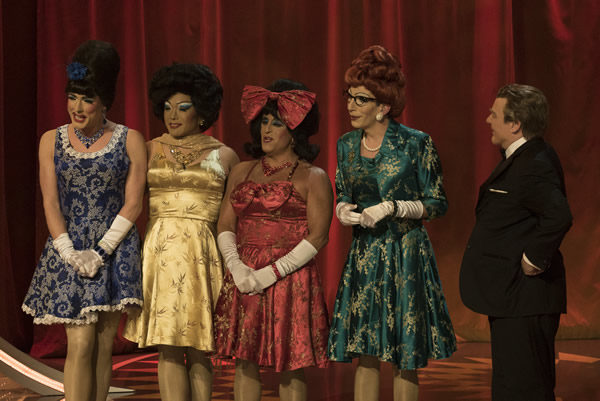
a&e features
Visit Cambridge, a ‘beautiful secret’ on Maryland’s Eastern Shore
New organization promotes town’s welcoming vibe, LGBTQ inclusion

CAMBRIDGE, Md. — Driving through this scenic, historic town on Maryland’s Eastern Shore, you’ll be charmed by streets lined with unique shops, restaurants, and beautifully restored Victorian homes. You’ll also be struck by the number of LGBTQ Pride flags flying throughout the town.
The flags are a reassuring signal that everyone is welcome here, despite the town’s location in ruby red Dorchester County, which voted for Donald Trump over Kamala Harris by a lopsided margin. But don’t let that deter you from visiting. A new organization, Proudly Cambridge, is holding its debut Pride event this weekend, touting the town’s welcoming, inclusive culture.
“We stumbled on a beautiful secret and we wanted to help get the word out,” said James Lumalcuri of the effort to create Proudly Cambridge.
The organization celebrates diversity, enhances public spaces, and seeks to uplift all that Cambridge has to share, according to its mission statement, under the tagline “You Belong Here.”
The group has so far held informal movie nights and a picnic and garden party; the launch party is June 28 at the Cambridge Yacht Club, which will feature a Pride celebration and tea dance. The event’s 75 tickets sold out quickly and proceeds benefit DoCo Pride.
“Tickets went faster than we imagined and we’re bummed we can’t welcome everyone who wanted to come,” Lumalcuri said, adding that organizers plan to make “Cheers on the Choptank” an annual event with added capacity next year.
One of the group’s first projects was to distribute free Pride flags to anyone who requested one and the result is a visually striking display of a large number of flags flying all over town. Up next: Proudly Cambridge plans to roll out a program offering affirming businesses rainbow crab stickers to show their inclusiveness and LGBTQ support. The group also wants to engage with potential visitors and homebuyers.
“We want to spread the word outside of Cambridge — in D.C. and Baltimore — who don’t know about Cambridge,” Lumalcuri said. “We want them to come and know we are a safe haven. You can exist here and feel comfortable and supported by neighbors in a way that we didn’t anticipate when we moved here.”

Lumalcuri, 53, a federal government employee, and his husband, Lou Cardenas, 62, a Realtor, purchased a Victorian house in Cambridge in 2021 and embarked on an extensive renovation. The couple also owns a home in Adams Morgan in D.C.
“We saw the opportunity here and wanted to share it with others,” Cardenas said. “There’s lots of housing inventory in the $300-400,000 range … we’re not here to gentrify people out of town because a lot of these homes are just empty and need to be fixed up and we’re happy to be a part of that.”
Lumalcuri was talking with friends one Sunday last year at the gazebo (affectionately known as the “gayzebo” by locals) at the Yacht Club and the idea for Proudly Cambridge was born. The founding board members are Lumalcuri, Corey van Vlymen, Brian Orjuela, Lauren Mross, and Caleb Holland. The group is currently working toward forming a 501(c)3.
“We need visibility and support for those who need it,” Mross said. “We started making lists of what we wanted to do and the five of us ran with it. We started meeting weekly and solidified what we wanted to do.”
Mross, 50, a brand strategist and web designer, moved to Cambridge from Atlanta with her wife three years ago. They knew they wanted to be near the water and farther north and began researching their options when they discovered Cambridge.
“I had not heard of Cambridge but the location seemed perfect,” she said. “I pointed on a map and said this is where we’re going to move.”
The couple packed up, bought a camper trailer and parked it in different campsites but kept coming back to Cambridge.
“I didn’t know how right it was until we moved here,” she said. “It’s the most welcoming place … there’s an energy vortex here – how did so many cool, progressive people end up in one place?”
Corey van Vlymen and his husband live in D.C. and were looking for a second home. They considered Lost River, W.Va., but decided they preferred to be on the water.
“We looked at a map on both sides of the bay and came to Cambridge on a Saturday and bought a house that day,” said van Vlymen, 39, a senior scientist at Booz Allen Hamilton. They’ve owned in Cambridge for two years.
They were drawn to Cambridge due to its location on the water, the affordable housing inventory, and its proximity to D.C.; it’s about an hour and 20 minutes away.
Now, through the work of Proudly Cambridge, they hope to highlight the town’s many attributes to residents and visitors alike.
“Something we all agree on is there’s a perception problem for Cambridge and a lack of awareness,” van Vlymen said. “If you tell someone you’re going to Cambridge, chances are they think, ‘England or Massachusetts?’”
He cited the affordability and the opportunity to save older, historic homes as a big draw for buyers.
“It’s all about celebrating all the things that make Cambridge great,” Mross added. “Our monthly social events are joyful and celebratory.” A recent game night drew about 70 people.
She noted that the goal is not to gentrify the town and push longtime residents out, but to uplift all the people who are already there while welcoming new visitors and future residents.
They also noted that Proudly Cambridge does not seek to supplant existing Pride-focused organizations. Dorchester County Pride organizes countywide Pride events and Delmarva Pride was held in nearby Easton two weeks ago.
“We celebrate all diversity but are gay powered and gay led,” Mross noted.
To learn more about Proudly Cambridge, visit the group on Facebook and Instagram.
What to see and do
Cambridge, located 13 miles up the Choptank River from the Chesapeake Bay, has a population of roughly 15,000. It was settled in 1684 and named for the English university town in 1686. It is home to the Harriet Tubman Museum, mural, and monument. Its proximity to the Blackwater National Wildlife Refuge makes it a popular stop for birders, drawn to more than 27,000 acres of marshland dubbed “the Everglades of the north.”
The refuge is walkable, bikeable, and driveable, making it an accessible attraction for all. There are kayaking and biking tours through Blackwater Adventures (blackwateradventuresmd.com).
Back in town, take a stroll along the water and through historic downtown and admire the architecture. Take in the striking Harriet Tubman mural (424 Race St.). Shop in the many local boutiques, and don’t miss the gay-owned Shorelife Home and Gifts (421 Race St.), filled with stylish coastal décor items.
Stop for breakfast or lunch at Black Water Bakery (429 Race St.), which offers a full compliment of coffee drinks along with a build-your-own mimosa bar and a full menu of creative cocktails.
The Cambridge Yacht Club (1 Mill St.) is always bustling but you need to be a member to get in. Snapper’s on the water is temporarily closed for renovations. RaR Brewing (rarbrewing.com) is popular for craft beers served in an 80-year-old former pool hall and bowling alley. The menu offers burgers, wings, and other bar fare.
For dinner or wine, don’t miss the fantastic Vintage 414 (414 Race St.), which offers lunch, dinner, wine tasting events, specialty foods, and a large selection of wines. The homemade cheddar crackers, inventive flatbreads, and creative desserts (citrus olive oil cake, carrot cake trifle) were a hit on a recent visit.
Also nearby is Ava’s (305 High St.), a regional chain offering outstanding Italian dishes, pizzas, and more.
For something off the beaten path, visit Emily’s Produce (22143 Church Creek Rd.) for its nursery, produce, and prepared meals.
“Ten minutes into the sticks there’s a place called Emily’s Produce, where you can pay $5 and walk through a field and pick sunflowers, blueberries, you can feed the goats … and they have great food,” van Vlymen said.
As for accommodations, there’s the Hyatt Regency Chesapeake Bay (100 Heron Blvd. at Route 50), a resort complex with golf course, spa, and marina. Otherwise, check out Airbnb and VRBO for short-term rentals closer to downtown.
Its proximity to D.C. and Baltimore makes Cambridge an ideal weekend getaway. The large LGBTQ population is welcoming and they are happy to talk up their town and show you around.
“There’s a closeness among the neighbors that I wasn’t feeling in D.C.,” Lumalcuri said. “We look after each other.”
a&e features
James Baldwin bio shows how much of his life is revealed in his work
‘A Love Story’ is first major book on acclaimed author’s life in 30 years

‘Baldwin: A Love Story’
By Nicholas Boggs
c.2025, FSG
$35/704 pages
“Baldwin: A Love Story” is a sympathetic biography, the first major one in 30 years, of acclaimed Black gay writer James Baldwin. Drawing on Baldwin’s fiction, essays, and letters, Nicolas Boggs, a white writer who rediscovered and co-edited a new edition of a long-lost Baldwin book, explores Baldwin’s life and work through focusing on his lovers, mentors, and inspirations.
The book begins with a quick look at Baldwin’s childhood in Harlem, and his difficult relationship with his religious, angry stepfather. Baldwin’s experience with Orilla Miller, a white teacher who encouraged the boy’s writing and took him to plays and movies, even against his father’s wishes, helped shape his life and tempered his feelings toward white people. When Baldwin later joined a church and became a child preacher, though, he felt conflicted between academic success and religious demands, even denouncing Miller at one point. In a fascinating late essay, Baldwin also described his teenage sexual relationship with a mobster, who showed him off in public.
Baldwin’s romantic life was complicated, as he preferred men who were not outwardly gay. Indeed, many would marry women and have children while also involved with Baldwin. Still, they would often remain friends and enabled Baldwin’s work. Lucien Happersberger, who met Baldwin while both were living in Paris, sent him to a Swiss village, where he wrote his first novel, “Go Tell It on the Mountain,” as well as an essay, “Stranger in the Village,” about the oddness of being the first Black person many villagers had ever seen. Baldwin met Turkish actor Engin Cezzar in New York at the Actors’ Studio; Baldwin later spent time in Istanbul with Cezzar and his wife, finishing “Another Country” and directing a controversial play about Turkish prisoners that depicted sexuality and gender.
Baldwin collaborated with French artist Yoran Cazac on a children’s book, which later vanished. Boggs writes of his excitement about coming across this book while a student at Yale and how he later interviewed Cazac and his wife while also republishing the book. Baldwin also had many tumultuous sexual relationships with young men whom he tried to mentor and shape, most of which led to drama and despair.
The book carefully examines Baldwin’s development as a writer. “Go Tell It on the Mountain” draws heavily on his early life, giving subtle signs of the main character John’s sexuality, while “Giovanni’s Room” bravely and openly shows a homosexual relationship, highly controversial at the time. “If Beale Street Could Talk” features a woman as its main character and narrator, the first time Baldwin wrote fully through a woman’s perspective. His essays feel deeply personal, even if they do not reveal everything; Lucian is the unnamed visiting friend in one who the police briefly detained along with Baldwin. He found New York too distracting to write, spending his time there with friends and family or on business. He was close friends with modernist painter Beauford Delaney, also gay, who helped Baldwin see that a Black man could thrive as an artist. Delaney would later move to France, staying near Baldwin’s home.
An epilogue has Boggs writing about encountering Baldwin’s work as one of the few white students in a majority-Black school. It helpfully reminds us that Baldwin connects to all who feel different, no matter their race, sexuality, gender, or class. A well-written, easy-flowing biography, with many excerpts from Baldwin’s writing, it shows how much of his life is revealed in his work. Let’s hope it encourages reading the work, either again or for the first time.
a&e features
Looking back at 50 years of Pride in D.C
Washington Blade’s unique archives chronicle highs, lows of our movement
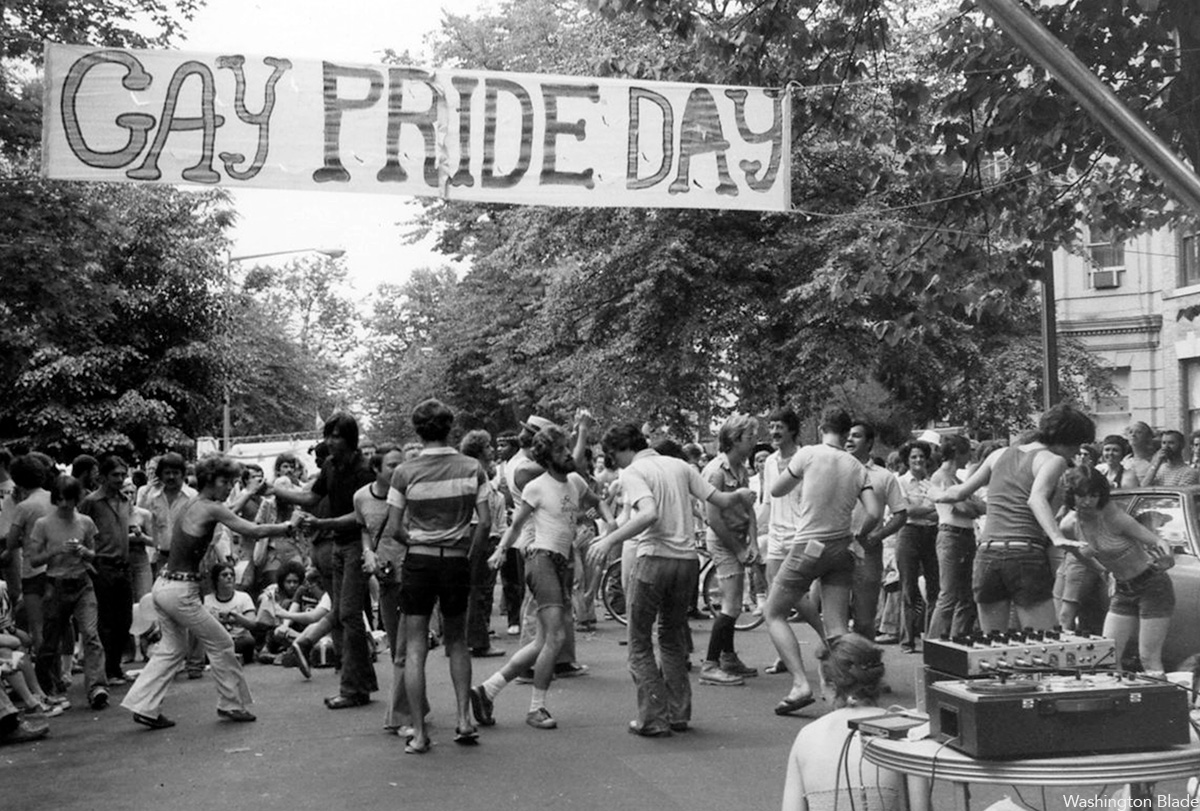
To celebrate the 50th anniversary of LGBTQ Pride in Washington, D.C., the Washington Blade team combed our archives and put together a glossy magazine showcasing five decades of celebrations in the city. Below is a sampling of images from the magazine but be sure to find a print copy starting this week.
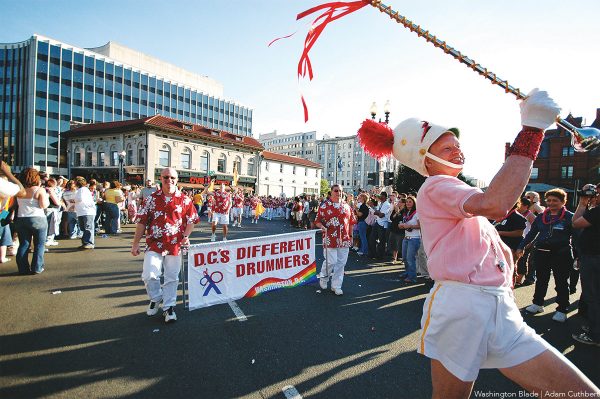
The magazine is being distributed now and is complimentary. You can find copies at LGBTQ bars and restaurants across the city. Or visit the Blade booth at the Pride festival on June 7 and 8 where we will distribute copies.
Thank you to our advertisers and sponsors, whose support has enabled us to distribute the magazine free of charge. And thanks to our dedicated team at the Blade, especially Photo Editor Michael Key, who spent many hours searching the archives for the best images, many of which are unique to the Blade and cannot be found elsewhere. And thanks to our dynamic production team of Meaghan Juba, who designed the magazine, and Phil Rockstroh who managed the process. Stephen Rutgers and Brian Pitts handled sales and marketing and staff writers Lou Chibbaro Jr., Christopher Kane, Michael K. Lavers, Joe Reberkenny along with freelancer and former Blade staffer Joey DiGuglielmo wrote the essays.

The magazine represents more than 50 years of hard work by countless reporters, editors, advertising sales reps, photographers, and other media professionals who have brought you the Washington Blade since 1969.
We hope you enjoy the magazine and keep it as a reminder of all the many ups and downs our local LGBTQ community has experienced over the past 50 years.
I hope you will consider supporting our vital mission by becoming a Blade member today. At a time when reliable, accurate LGBTQ news is more essential than ever, your contribution helps make it possible. With a monthly gift starting at just $7, you’ll ensure that the Blade remains a trusted, free resource for the community — now and for years to come. Click here to help fund LGBTQ journalism.
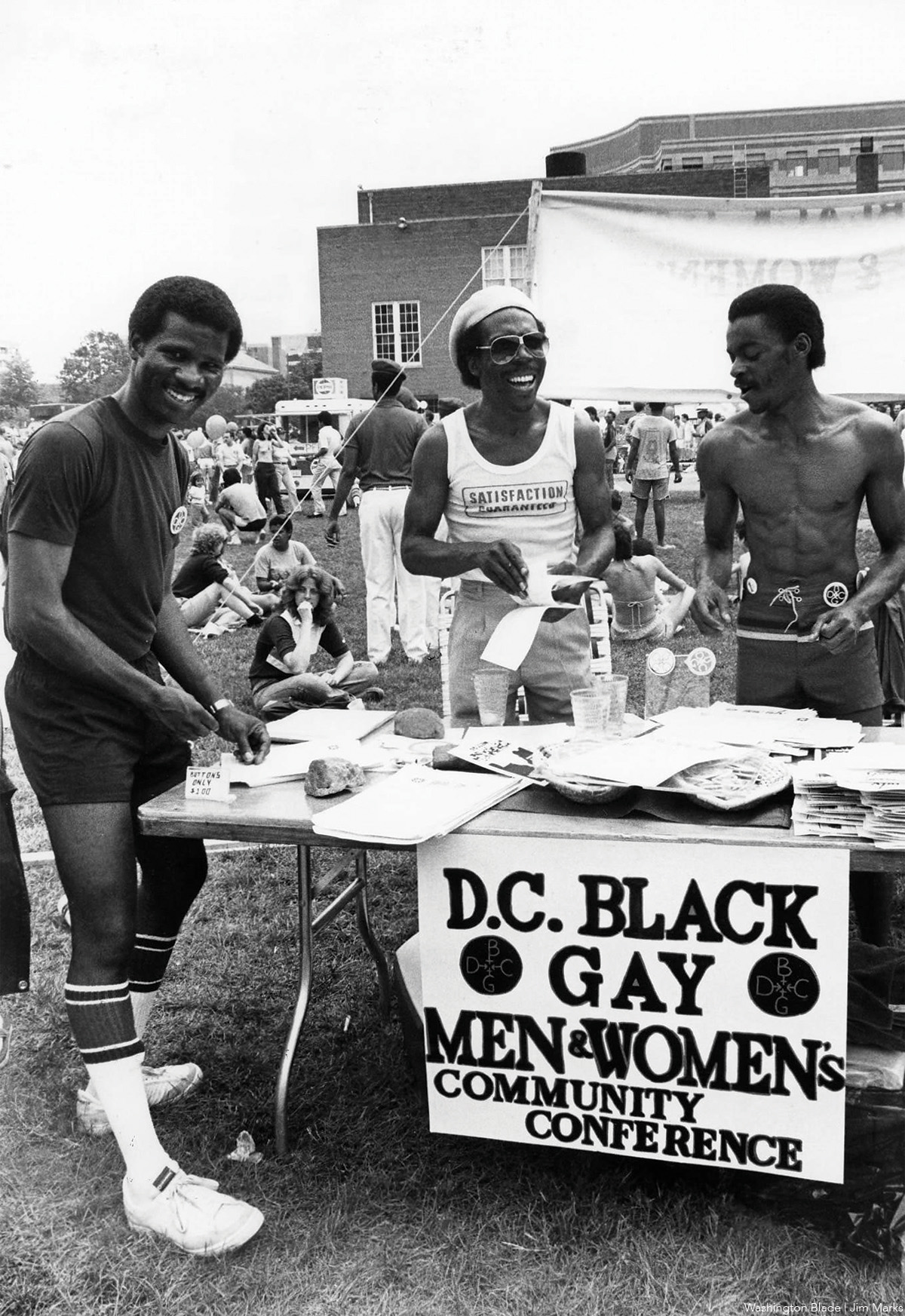
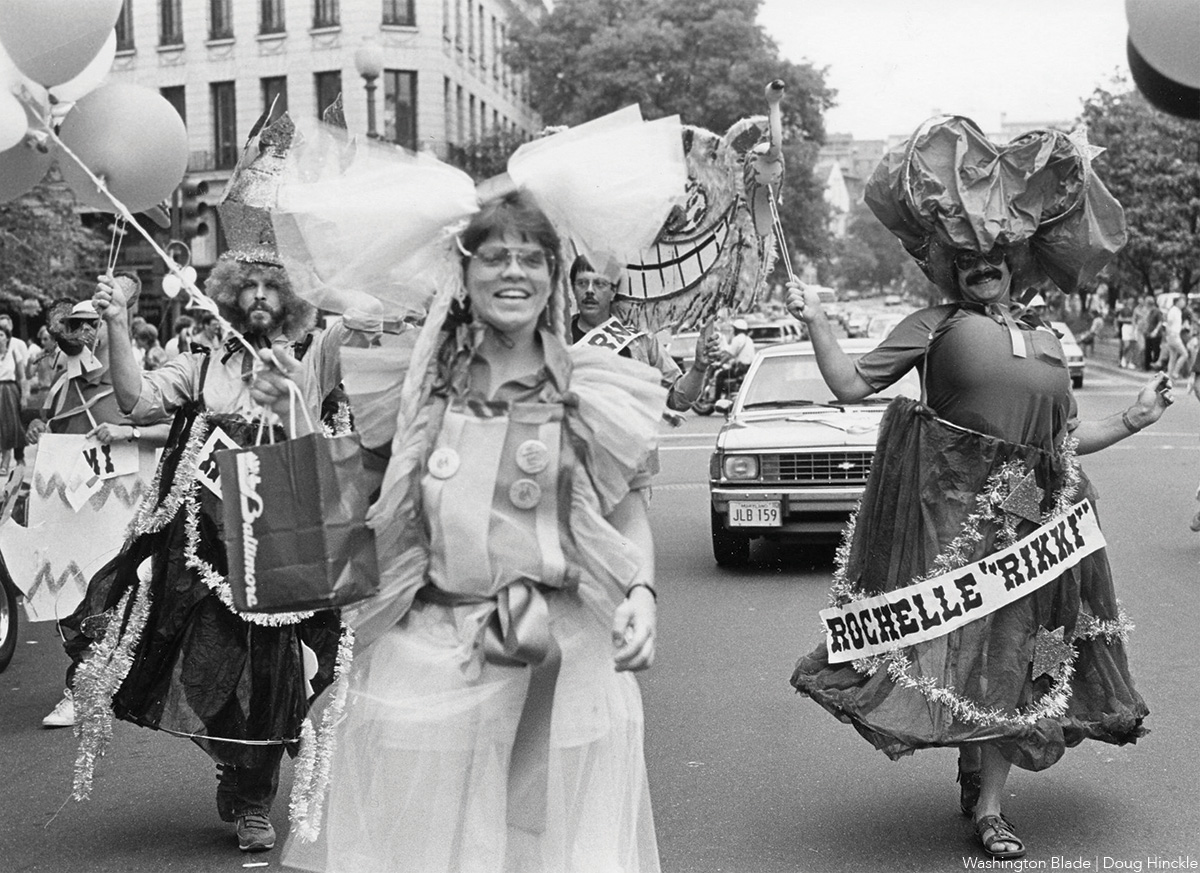
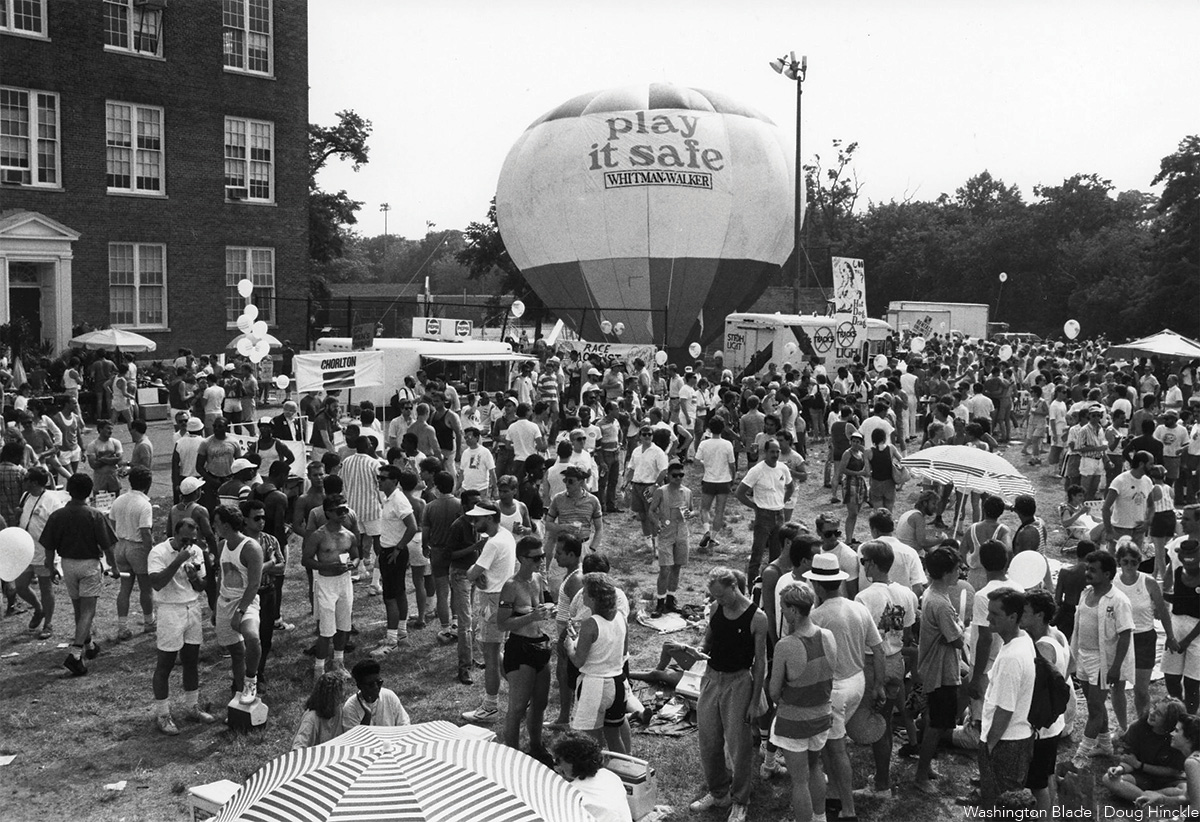
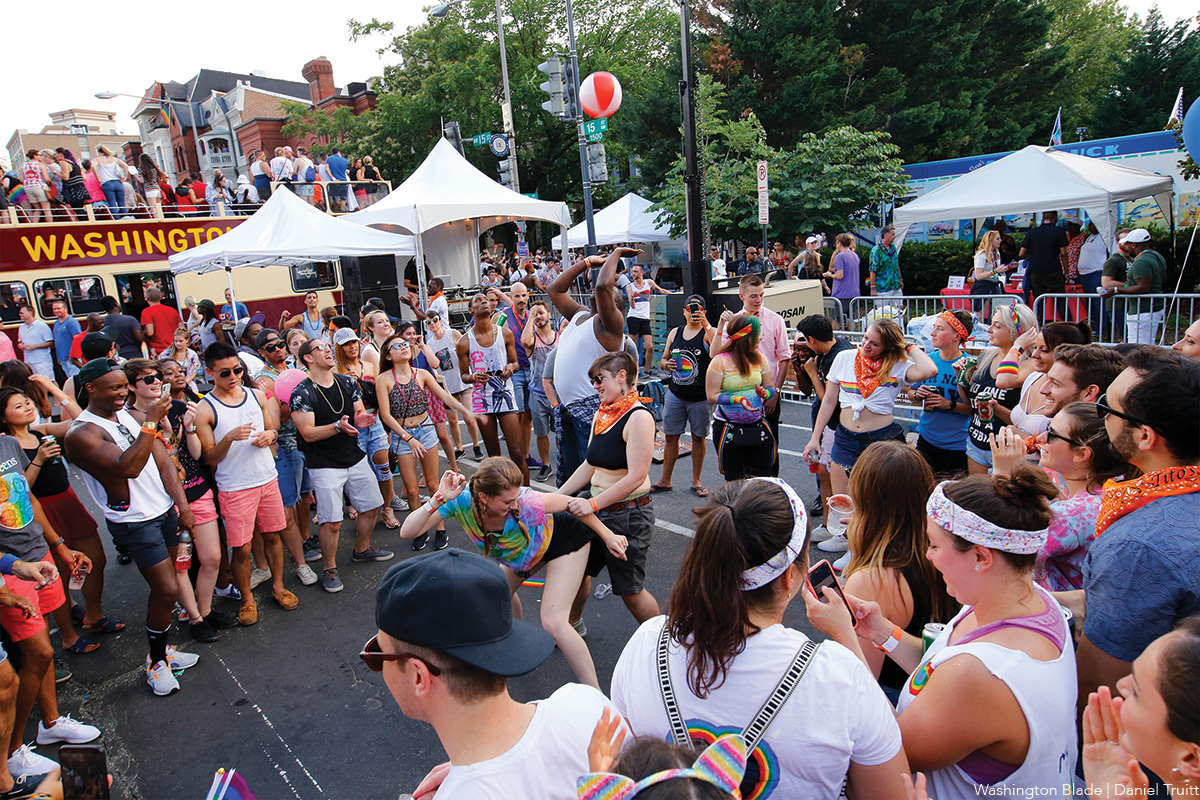
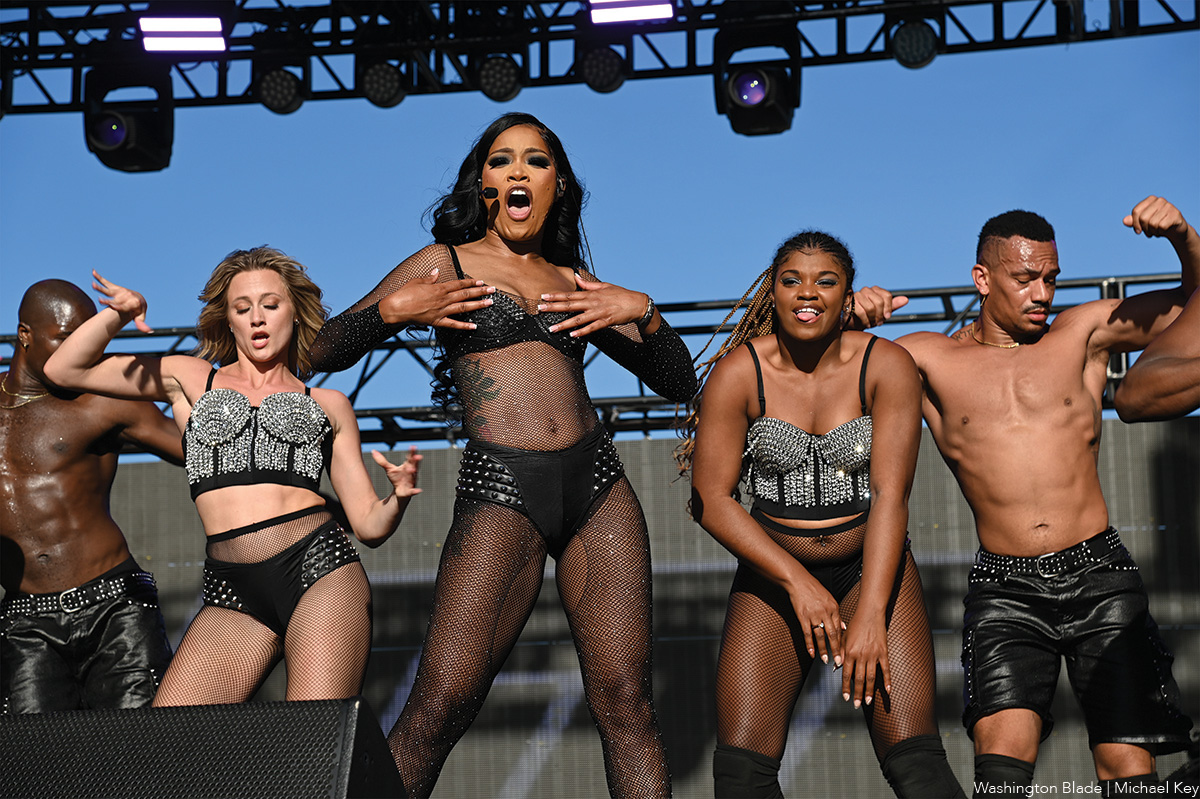
-

 U.S. Supreme Court4 days ago
U.S. Supreme Court4 days agoSupreme Court upholds ACA rule that makes PrEP, other preventative care free
-

 U.S. Supreme Court4 days ago
U.S. Supreme Court4 days agoSupreme Court rules parents must have option to opt children out of LGBTQ-specific lessons
-

 Congress5 days ago
Congress5 days agoSenate parliamentarian orders removal of gender-affirming care ban from GOP reconciliation bill
-

 District of Columbia5 days ago
District of Columbia5 days agoMan sentenced to 15 years in prison for drug deal that killed two DC gay men

